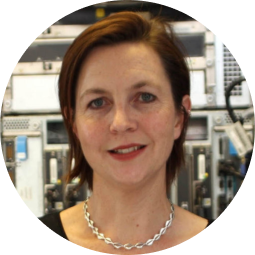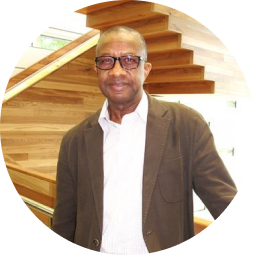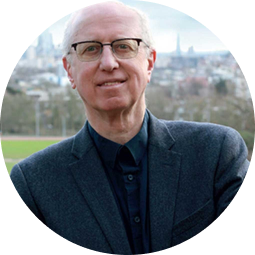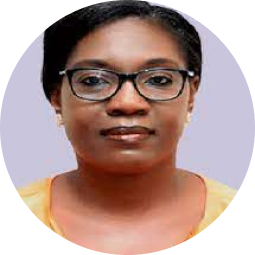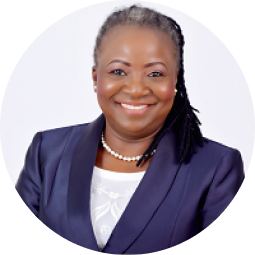
Her career for over 30 years has distinguished her as an academic, scientist and researcher who has blazed the trail in promoting quality laboratory medicine practices in Nigeria and Africa. In 1993, her post-doctoral research was the first to document the unique HIV strain prevalent in Nigeria as HIV subtype G, different from the subtype B circulating in Europe and USA. She also established the first reliable HIV research laboratory in Central Nigeria and chairs the Board of Directors of the African Society for Laboratory Medicine (ASLM).Her research interests are in the epidemiological characterization of viruses and HIV disease models from selected target study populations in Nigeria to understand the pathogenesis of HIV and coinfections; and protective mechanisms through HIV vaccine research.
She is currently a member of the International Scientific Advisory Group for University of Cape Town and serves as a member of the Scientific Advisory Group WHO R&D for preparedness for Epidemics, member of the steering committee of WHO Global HIV Drug Resistance Network (RESNET), member of the Coalition for Epidemic Preparedness Innovations (CEPI) , fellow of the African Academy of Science, and member of the Nigerian Institute of Medical Research (NIMR) Research Advisory Board.
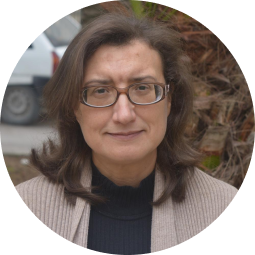

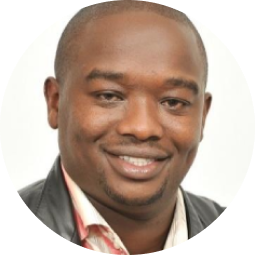
He has been a lead expert on domestic resource mobilization initiative in line with the Universal health coverage agenda at the national and county level in Kenya. Dr. Mwai work experience and advisory work spans the public and private sectors, not-for-profit, international development and Africa. He has led/handled health financing, health policy and research assignments at: USAID health policy project (HPP); USAID health policy plus (HP+); The Global fund (TB, Malarial and HIV); Joint United Nations Programme on HIV/AIDS (UNAIDS); Population Services – Kenya (PS-Kenya); Strathmore school of Global health; United Nations Childrens Fund (UNICEF); University of Nairobi; Deutsche Stiftung Weltbevölkerung (DSW Kenya); Palladium group; futures Group: Futures Group international, USAID, Ministry of Health, University of Nairobi, World Health Organization (WHO), Japanese International Cooperation Agency (JICA), Catholic Relief Service; and Ministry of health in Kenya ( including National Aids Control Council (NACC), National Aid and STI Control Programme (NASCOP) and Malaria Control Unit) Swaziland, Tanzania, Uganda, Zambia, Nigeria among others countries.
In addition, Dr Mwai is a capable professional in the field policy formulation, with great expertise in design and application of quantitative, qualitative methods in the health sector. His work has contributed to improvement in health care outcomes and expanded high quality pro-poor health services across all levels of the health system. He has played critical role in advocating and design of minimum essential package for health and reforms in the NHIF. He is currently a member of the: National Technical Working Group (TWG) on health care financing and Universal Health Coverage (UHC); The Consortium for Advanced Research Training in Africa (CARTA); Commissioner -The National Non communicable disease and injuries Poverty Commission on sustainable and efficient financing of health and NCDs; Alternate finance expert – Global Scaling Up Nutrition (SUN) Executive Committee; Member- Strategic Purchasing Africa Resource Centre (SPARC); National health accounts Technical Assistant provider WHO. Member: East Central and Southern Africa Health Community (ECSA-HC). Reviewer: International Journal of Tropical Disease and Health; Research associate: African economic research consortium.

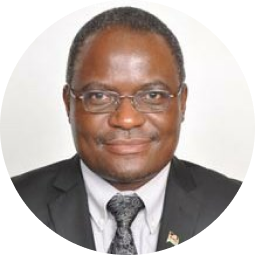
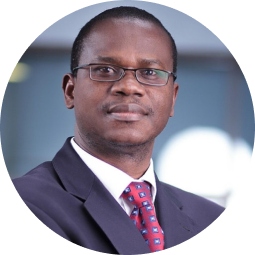
Alex Ezeh, PhD, is professor of Global Health in the Department of Community Health and Prevention at the Dornsife School of Public Health. Dr. Ezeh brings decades of experience in research, research capacity strengthening, and policy advocacy on a range of global health and development issues. He comes to Dornsife from the African Population and Health Research Center (APHRC) where he served as the founding Executive Director and, over a period of 17 years, guided APHRC to become one of Africa’s foremost regional research center addressing population, health, education and development issues.
He initiated and directed the Consortium for Advanced Research Training in Africa and the African Doctoral Dissertation Research Fellowship programs to strengthen doctoral training and the retention of academics at universities across sub-Saharan Africa.

